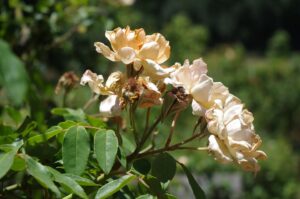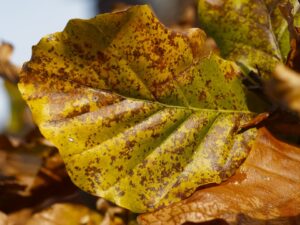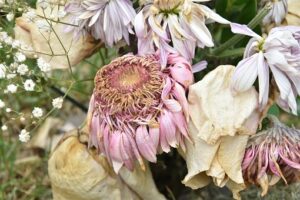12 Common Garden Mistakes That Harm The Environment

Our environment has been negatively impacted in so many ways from the exhaust of cars to harmful fumes to small and big engine equipment to burning fossil fuels, deforestation, coal, oil, factory fumes, etc.. a common practice in many countries is planting trees. One such day that’s celebrated is Arbor Day, this popular day is set aside on March 21 when schools nationwide recognize this day with environment-related activities such as tree planting.
The well-fare of our environment is in our hands, it’s up to us to do what we can to promote an environment that’s healthy, we will be discussing what we can do to ensure that we are doing our part to make a positive impact not only on our environment but our ecosystem as well.
Affiliate Disclaimer
As an Amazon Associate and the Owner of this Website, I’ve tracked down special deals for some of the products mentioned here. When you use the links on this page to make a purchase I may get a small commission and you will get a great bargain. It’s a WIN-WIN for both of us
1. Not Understanding How Soil Works
At the root of growing healthy plants is the soil, soil does matter which means when installing a garden the soil should be tested (pH) for nutrient availability. If the soil’s pH has to be adjusted and is ignored will cause serious issues, your plants will suffer which means you would have wasted time and money. Installing plants without the proper soil test is working blindly.
Getting a soil test done is simple and can either be carried out with a soil test home kit or you can scoop a handful of soil from different parts of the area that is to be planted place it in a plastic bag and carry it to your lab for testing. Another reason why garden plants don’t thrive when it comes to the soil is the wrong soil type, different species of plants have different soil requirements.
Some garden plants can thrive in soils that are sandy, sandy soils are light, warm, dry, often acidic, low in nutrients, and drain quickly meaning these soil types cannot hold moisture.
Then there are clay soils, this soil type is heavy and drains slowly meaning it holds moisture for a long time and can become very dry during hot weather but in cold weather, the soil is wet and cold. This soil type is usually high in nutrients.
Silt soils are fertile, and light can hold moisture but can compact easily.
Loam or loam soils are a mixture of silt, clay, and sand, this soil is the ideal soil for growing herbs, vegetables, fruit trees, and many garden plant species.
2. Wrong Plant Placement
When it comes to plant placement there are a few things to consider first the location, some garden plants love the full sunlight and then there are others that love the partial shade and still, there are others that love the full shade. Before purchasing and installing plants know what lighting conditions they thrive best under. Another mistake that is made is not knowing the height of a plant at maturity and installing it in an area where the plant outgrows the area which causes the plant to suffer because of its size. Get to know the proper height of your plants once they reach maturity for proper placement.
3. Not Understanding how to Use Pesticides
Pesticides are poisons that bring control by reducing the population of garden insect pests, reaching for pesticides should be the last resort that one should take, and if pesticides are needed start with the least toxic first. The wrong use of pesticides will not only contaminate the air that we breathe affecting humans, pets, wildlife, pollinators, and beneficial insects but can get into our water system causing contamination and can also drift off to water bodies such as lakes, streams, and rivers.
Before reaching for pesticides make sure first that, that method of insect control is needed and then use the least toxic or go for organic pesticides. Before pesticide application read and follow the manufactures directions for the best results.

4. Overwatering
All plant species need water to survive but each plant has different watering needs, know the watering needs of your plant because overwatering will not only kill plants but will contribute to water wastage which can increase your water bill. Knowing your plant’s watering needs will not only encourage healthy plants but will help you to save your hard-earned dollars.
5. Discouraging Pollinators
Encouraging pollinators into our gardens is so important, pollinators assist in the health of our ecosystem, without the presence of bees to germanate our crops we will not have any foods that humans and wildlife depend on. To encourage pollinators to your garden ( a natural habitat) install native plants according to the recommendation of your Zones. Native plants have a variety of flower colors and shapes that will attract pollinators. Also, plant dense shrubs so birds and caterpillars can feel safe.
6. Disgarding Waste
There is a saying “that one man’s junk is another man’s treasure” this is so true, instead of tossing your kitchen scapes such as vegetables and fruits into the garbage why not start a compost pile? Composting is a great way to build organic soils for your garden, what I love about this compost bin is it’s easy to use and will give good results. Also, food scraps or kitchen scraps can be regrown back into full healthy vegetables. Leaves and healthy grass clippings can be recycled by tossing them into your compost bin.
7. Overfertlizing the Soil
Fertilizers are not a cure-all for plants, in fact, the overuse or the misuse of fertilizers can cause more harm than good, plants naturally manufacture their foods in the presence of sunlight, water, and carbon dioxide (CO2) from the air. Fertilizers are plant nutrients but overuse will encourage a biological imbalance between the plants and the soil which in turn will affect a plant’s health leading to deterioration which will cause plants’ to be susceptible to garden insect pests.
And overuse of fertilizers can also get into our water system including water bodies such as lakes, streams, and rivers causing contamination, organic fertilizers are the first choice but if your preference is synthetic or man-made fertilizers because of quick action or results then make sure to read the manufacturer’s direction on the label for the best results.
8. Overcrowding Plants
Installing plants too closely can also have a negative impact, it’s important however to know what size your plant will be at maturity to give them the proper spacing, overcrowding will lead to poor airflow or poor air-circulation that will cause browning of leaves followed by leaf drop so remember to give your plants the proper spacing at the first installation.

9. Not Keeping Your Garden Clean
A well-kept garden is a healthy garden, the opposite is true a garden that’s kept in a poor state will not only look unattractive but will harbor disease and garden insect pests that are not good for your garden environment. Have a regular monthly schedule cleaning program to keep your plants nicely trimmed and growing at the proper height along with the removal of weeds, dead leaves, and other debris. A build-up of dead leaves that are left in your garden can encourage bacteria and fungi that can spread to healthy plants.
10. Letting Weeds Grow Out Of Control
Weeds compete with garden plants for sunlight, water, and nutrients, weeds also encourage garden insect pests and rodents such as rats which again is not good for our environment because rats spread disease. Make sure and keep your garden free of weeds as much as possible, I know this may be a challenge and a daunting task so a good solution is to have a weeding program so whenever you go into your garden to clean it there would be less work because of the weed control measures you would have put in place.
11. Lawn Care
A lawn that’s well kept is so beautiful and will increase a property’s value but a lawn that’s neglected will look sickly not only taking away from your property’s value but will encourage rodents like rats and mice that are disease-carrying creatures. A lawn that’s growing healthy and thick will also discourage weeds, ensure that your lawn is properly maintained by keeping them cut at the right height along with the right water and fertilizing program.
12. A Lack of Diversity
A lack of diversity can impact your garden in a negative way, planting too much of the same thing will not only look boring and unattractive but will discourage pollinators from paying your garden a visit. Again using too many of the same species of plants can leach nutrients making it bad for the soil and may cause the rapid spread of disease. Use a variety of native plants including trees, shrubs, and ornamental plants that will create a natural habitat attracting wildlife, pollinators, and beneficial insects. This will encourage biodiversity that is of great value to our ecosystem and environment as a whole.
The final word on common garden mistakes
We should do all that we can to take care of our environment, all of us have a part to play, the planting of trees, shrubs, ornamental grass, and other plant species can contribute to the health of our environment including our ecosystem. It’s a known fact that trees and plants not only provide food or are grown for their beauty but helps to pull toxin out of the air along with discouraging soil erosion. Trees including shrubs and other plant species provide shelter and a safe haven for wildlife, these benefits should encourage us to plant a tree or better yet a garden that can help in so many ways. Let’s do all that we can to arm ourselves with the right knowledge in order to have a positive impact on our environment.
About the author
Norman loves being in the garden, both at home and for his job....
he is 'Natures Little helper' being outdoors, growing his vegetables and flowers from an early age.
Now having spent over 22 years in the profession he want to give some of his knowledge to others...
his vast array of hints and tips you will find scattered over this site will help you no end growing plants in your garden.

This past year we moved from the city to the country. And let me tell you how much I have learned from being a resident in our new area. There are many in the country that are beekeepers. It’s been fascinating to me to learn about the work they do. When we lived in the city I would always treat my lawn in the spring. Until now…
I’ve learned from the beekeepers that treating the dandelions can actually kill an entire hive. Until they shared what the root cause is and the importance, I would have never known. Thanks for sharing the dangers of pesticides in your article.
It is so good to hear of the amount of knowledge that you have received, with the right knowledge we can help to promote the well-being of wildlife, pollinators, and beneficial insects. I am so happy to help.
As someone who works in the real estate industry, I have been paying a lot of attention to gardening as it can make a big difference in the curb appeal of a home and whether it sells. Unfortunately, however, I’ve never been good at gardening and now I know why after reading your article on common garden mistakes. One question I have is, what are good combinations of plants to have in a garden? I’m afraid that if I get the combination wrong, I might run into soil and water issues where different plants have drastically different requirements.
The answer to that question is in the statement that you made, ensure when planning on grouping plants together that you find out the information on the watering, lighting, and soil requirements. Your plant nurseryman will have this information for you. Once you have insights into the same care requirements you can choose your plant species. I hope that this helps.
Growing up, my parents had a remarkable talent for gardening. Although I didn’t acquire their green thumb as much as I anticipated, I learned the significance of having a good soil composition in gardening. My folks frequently emphasized that “Gardeners know the best dirt,” and they definitely proved it. When I come to them for advice on pest control in my garden, they usually start with the soil.
I liked that you taught how to use pesticides correctly but what are some alternative methods for controlling garden pests without the use of pesticides?
So good to hear that you have a background in gardening being introduced from an early age, I can understand your concern about going natural. Here are some natural homemade remedies that have proven to be effective.
Hope this helps. https://gardenofedengardencent…